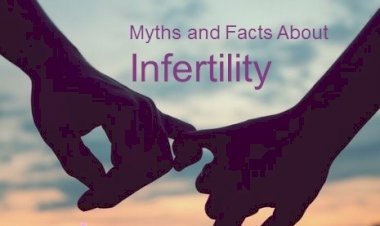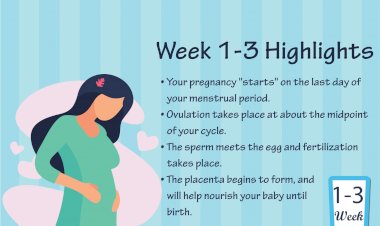How obesity affects Fertility?

How obesity affects Fertility?
Obesity can have damaging influences on almost all systems of the body, encompassing reproductive health. The presence of obesity in women facing fertility issues is always high, and it is well known fact obesity and infertility are interrelated in more than one way.
Affects of Obesity on Infertility - Excess weight not only impacts the possibility of becoming pregnant, rather it affects sex life as well. When it comes to women’s fertility obesity can have multiple affects on you and your partner’s overall health.
Here are some of the affects that obese women face and how it affects their chances of becoming pregnant –
Obesity affects hormones – Among the different affects that obesity causes in respect to fertility, one of the most serious of them is that it affects hormones. When the BMI or Body Mass Index reaches to a certain point that is above 25%, body starts experiencing hormonal changes which affects the chances of getting pregnant.
Since the level of natural hormones in the body change dramatically, it gets difficult for women of any age to conceive while going trough significant obesity.
Excess body weight lead to insulin resistance – Since obese women face the issue of hormonal imbalance, this condition is often coupled with resistance to insulin. Developing resistance to insulin is one of the major factors that can lead to diabetes which in turn disturbs the menstrual cycle of women ultimately leading to infertility in some point of age.
Moreover, when someone experiences insulin resistance they are expected to go through anovulation which makes it difficult for the individual to produce proper eggs that could lead to creation of embryo necessary for development of fetus.
Obesity affects assisted pregnancy as well – Not only obesity affects natural pregnancy, rather it affects the chances of woman to get pregnant through technological methods. Women with weight issues find it difficult to respond to the treatment owing to their hormonal imbalance and it gets tougher for them to develop eggs and ovulate through means that can help facilitate organic pregnancy.
However, if the treatment has been successful and pregnancy is achieved the chances of complication always run higher that can easily turn into miscarriage in the event of women failing to pay proper attention to their health.
Obesity affects your partner’s fertility as well – While a lot of focus is put on the affects of obesity in respect to fertility among women, it is also quite possible that it affects the fertility of their partner as well. Since, obese women can find it difficult to get pregnant, their partners get psychologically disturbed over this and they tend to experience a drop in their testosterone levels.
Men who face the problem of overweight also get affected with higher BMI and they too can experience erectile dysfunction leading to possibility of development of infertility.
Some facts about Obesity and Pregnancy – Women who have a Body Mass Index above 30% find it difficult to achieve spontaneous pregnancy. Rather their chances of experiencing spontaneous pregnancy drops by 26% in comparison to someone who were having proper BMI.
Women having body mass index above 42 % are likely to face issues in getting pregnant. They are 43% less likely to get pregnant and in case pregnancy is achieved the chances of complications remain higher in comparison to woman of same age having proper BMI.
A woman who is obese is a more likely candidate of miscarriage in comparison to someone having proper body weight. Infants born to women who are obese are very likely to be large for their age. Therefore they would be required to put under neonatal intensive care, they may also suffer from some form of congenital disorder.
Conclusion – If all the above mentioned affects seem challenging, it is suggested that you try and seek the advice of your partner and go for weight reduction. Once you start losing your weight, every possible negative aspect such as hormonal imbalance, complications may start to diminish enabling you to become more confident about your reproductive capacity.





































Comments (0)